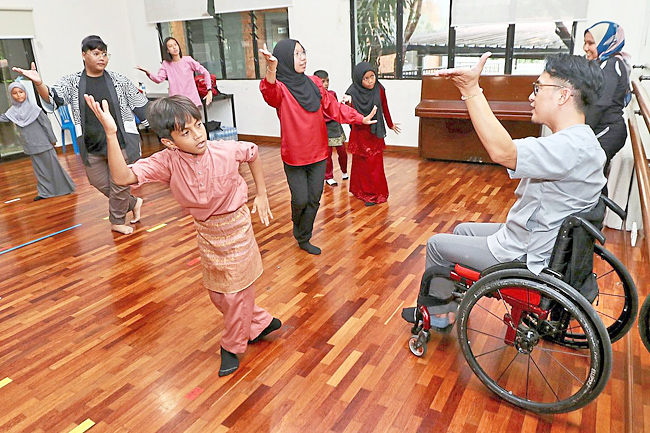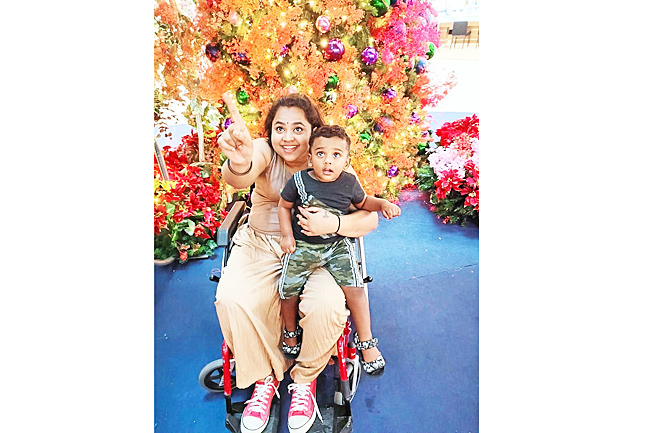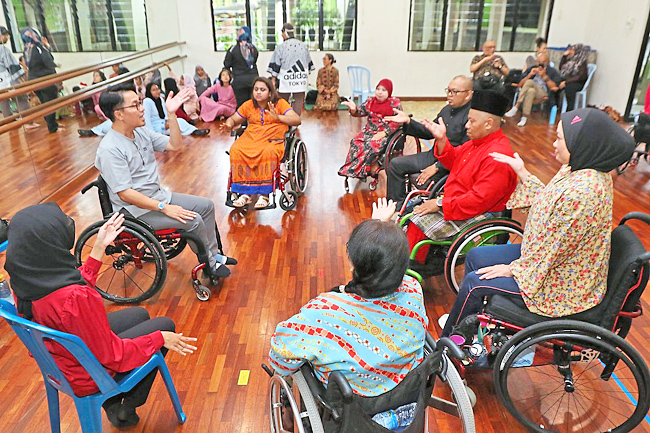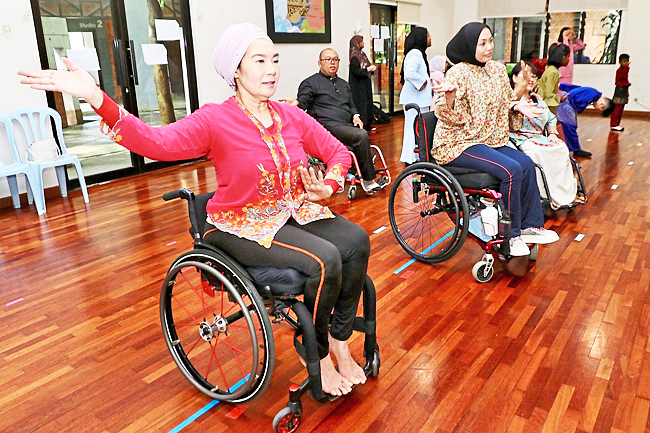ANN/THE STAR – Jegatheswary Jegathesan, a 31-year-old who works as a data-entry clerk and uses a wheelchair, exuded joy as she attended the Gerak: OKU Traditional Dance workshop in Kuala Lumpur, Malaysia a few weeks ago.
It marked her first experience in a dance workshop that was thoughtfully crafted for individuals with disabilities, also known as OKU.
“I learned about the two-day workshop through OKU Sentral, a non-governmental organisation that champions the rights of OKU. I felt inspired to attend. During the workshop, I discovered how to use my hands and arms to create synchronised movements in response to the music. We learned joget and a creative/traditional dance.
“I have never attempted to dance in a wheelchair before, and it has been a fascinating experience. My arms felt tired, but I’m delighted to gradually enhance my flexibility and physical strength,” said Jegatheswary during the workshop.
Gerak, promoted as Malaysia’s pioneering traditional dance workshop for individuals with disabilities, was a collaborative effort between OKU Sentral and the College of Creative Arts at Universiti Teknologi Mara (UiTM) in Shah Alam, Selangor. The event garnered backing from the Bureau of Educational and Cultural Affairs within the United States (US) Department of State, as well as the non-profit diplomacy organisation, Meridian International Center, headquartered in Washington.




Jegatheswary was one of 16 individuals from the disability community at the event. The group comprised nine deaf children from Tadika Istika Jaya in Puchong, Selangor, a blind individual, and six wheelchair users – two amputees, one polio survivor and three paraplegics.
Jegatheswary became a paraplegic due to a motorcycle accident in 2013. Despite her disability, she maintains a positive outlook on life as a mother of one.
“Like other paraplegics, I initially struggled with depression post-accident, realising I’d never walk again. Nevertheless, I’ve since adapted to my disability, never allowing it to diminish my determination to pursue new challenges.
“To this day, I work, drive and strive to raise my three-year-old son. I’m thankful for my husband and family’s support, which keeps me motivated,” explained Jegatheswary, who lives in Air Panas in Setapak, Kuala Lumpur.
She advises individuals with disabilities to persevere and pursue their passions fearlessly, urging them to never surrender and always embrace new experiences.
“I think it’s important for people from the disabled community to try new things. Each new experience is a step towards building confidence as they discover their capabilities.
“Thanks to this dance workshop, I have made so many new friends, and I feel more confident dancing in my wheelchair. I never thought I could do it, but I’m happy I tried it out. Never let your disability bring you down. Instead, we need to adapt, grow and inspire.”
FREEDOM THROUGH MOVEMENT
Gerak is just one of the projects initiated by OKU Sentral president Datuk Ras Adiba Radzi to empower persons with disabilities (PWDs) to participate and learn techniques in the world of arts, particularly dance.
Ras Adiba emphasises that the workshop, with participants representing various disability categories, sends a powerful message that no one should be excluded from the world of performing arts.
“OKU Sentral has its arts and culture unit and I encourage more OKU individuals to participate in our activities. By learning traditional dances, people with disabilities can acquire new skills and improve existing ones. Although they may have disabilities, they can receive training to learn dance movements and perform at events,” she said.
Ras Abida hopes to offer more classes for her dancers with special needs. She intends to showcase their talents at a mini concert to celebrate International Day of Persons With Disabilities on December 3.
“Our OKU friends truly enjoyed the workshop. Many of them had never attended a two-day dance workshop, and they had a great time. They engaged in discussions with the choreographer about various dance techniques and the significance of different hand movements.
“Even the young kindergarten participants had fun; as deaf students, they learned to follow the beat by feeling the vibrations on the wooden floor. Their instructor used visual cues to synchronise dance moves with floor vibrations, enhancing their understanding of rhythm and timing.”
UiTM lecturer Amandus Paul Panan, who is a paraplegic, served as the workshop’s choreographer. The accomplished lecturer, who is pursuing his PhD in Dramatherapy for Differently-Abled People at Universiti Malaya’s Faculty of Creative Arts, believes participants have the potential to excel in dance.
“For the workshop, I collaborated closely with Datuk Ras Adiba to select songs suitable for persons with disabilities. We worked on the beats and developed dance routines that were not overly complex for dancers with special needs.
“Overall, I think they performed quite well, particularly the adults in wheelchairs who could use their upper bodies to move to the beat,” shared Amandus, who became a paraplegic after experiencing a stroke in 2015.






